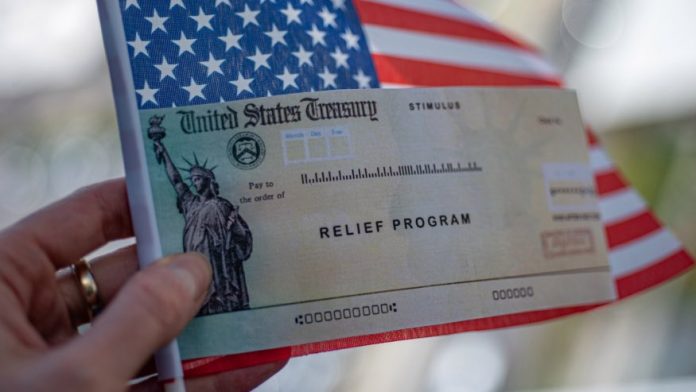The Democratic-controlled Congress is on the verge of passing its biggest round of coronavirus stimulus payments, delivering on a campaign promise by President Joe Biden.
If the $1.9 trillion Covid-19 relief bill passes and becomes law, it would provide the third round of stimulus checks — after the $1,200 payments last March and the $600 payments in the December bill signed by President Donald Trump.
The Senate is tweaking the House version of the bill, which is the most likely one to become law despite Republicans’ rallying in opposition. It’s still possible that some of the details could change before the process finishes and the money goes out.
But for now, here are some questions and answers about how payments would work under the Senate bill, according to information provided by Democratic staffers who crafted it:
Why $1,400? Biden promised $2,000
He did promise $2,000 payments — but in the context of raising payments in the December bill, which Republicans limited to $600. Biden says the $1,400 checks would deliver on the promise when they are added to the previous payments.
OK, so who gets the money?
Individuals who make less than $75,000 or heads of households who make less than $112,500. For married couples who file their taxes jointly, both would qualify for the full amount if they make up to $150,000 jointly. (Couples would get $2,800.)
Individuals who make $75,000 to $80,000 would still get checks, but they would be less than $1,400. The same goes for heads of household making $112,500 to $120,000 and couples making $150,000 to $160,000.
Those who make more wouldn’t get payments.
What about my kids?
In addition to the amounts for adults, parents would get $1,400 more for every child on their tax returns. That includes adult children, like college students, and those with permanent disabilities, unlike last year’s stimulus payments.
So if you’re a family of four with a household income under $150,000, you should get $5,600.
So some people who got cash last time wouldn’t now?
Correct. Biden agreed to demands by moderate Senate Democrats to “target” the checks more narrowly, which means individuals who make $80,000 to $100,000 (and couples who make $160,000 to $200,000) wouldn’t get any money.
What if I lost my job last year and now make less?
This is important: People who lost their jobs or whose incomes decreased for any reason last year should file their tax returns as soon as possible to get the maximum payment. If the IRS processes your new return by the time checks go out, that’s the income the payments would be based on.
If you don’t file in time, it would be based on your 2019 income — before the pandemic hit.
And what if my income went up last year?
Then you could probably get a bigger check if you wait to file your tax returns until after they went out. As long as you made less than $80,000 in 2019, that is. But don’t wait too long, either — the deadline to file tax returns is still April 15.
Would it come by direct deposit or paper check?
If the IRS has your bank account information on file, it would drop the money in by direct deposit. (In the previous rounds, that has been the fastest way.) If not, it would send a paper check to your address. You wouldn’t have to do anything other than to make sure it has your most up-to-date information.
If it’s a paper check, will Biden sign it like Trump did?
Unclear. A White House spokesperson declined to comment when asked about that.
Would I have to pay taxes on the payments?
No.
I’m not a U.S. citizen, but I’m a lawful resident. Would I qualify?
Yes, if you have a Social Security number.
I’m living in the U.S. illegally and pay taxes. Would I get a check?
No. You need a valid Social Security number. An Individual Taxpayer Identification Number wouldn’t count.
What if I’m married to an undocumented immigrant?
You would get a payment and your spouse wouldn’t. The same goes for your children — every family member with a Social Security number would get a payment, and those who lack one would be excluded.
I owe child support. Could they take my check?
If you owe child support or student debt to the federal government, you should be protected from garnishment. But debt owed to private entities isn’t protected because of the arcane Senate rules governing the process. (That’s a change from last year, when Congress used a different process that didn’t have this limit.)
OK. When would this bill become law?
Democrats say they want it signed by March 14, and that’s still realistic. The House has passed one version. The Senate is on course to pass it in the coming days, barring surprises. Then the House would have to vote again to pass the Senate version before it could go to Biden’s desk.
And how quickly would the payments go out?
The IRS has done this a couple of times already, so it should be able to move quickly. But there’s no exact timeline. Keep your eyes on your bank account or mailbox after Biden signs the bill.




